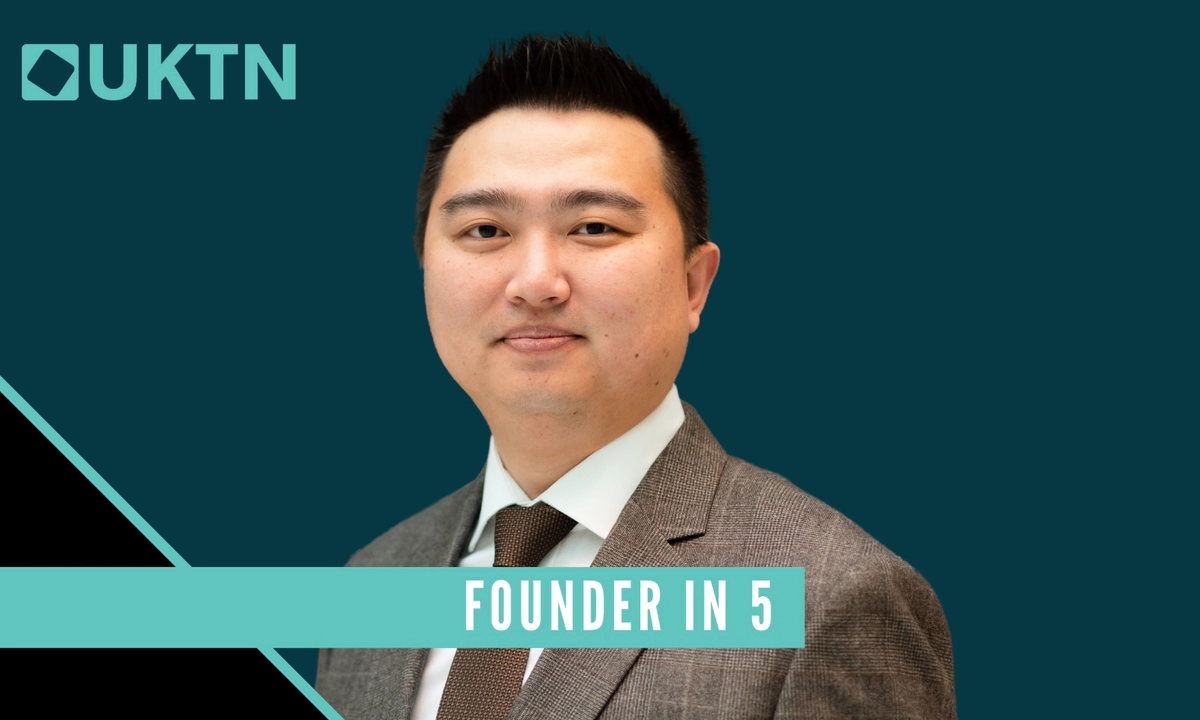Jay Shen is the founder and CEO of Transreport, which has created an app to assist disabled passengers on transport networks.
The company recently launched its flagship technology, called Passenger Assistance, which has been deployed by National Rail across the UK train network.
The smartphone app lets passengers request assistance and plan journeys. Shen founded Transreport while studying for his PhD at Warwick University in 2017 after seeing an opportunity for technology to create a better travel experience.
In this week’s Founder in Five Q&A, the Transreport boss explains why you should ensure your team is diverse from day one, why we need more purpose-driven businesses, and why startups shouldn’t overlook lived experience when hiring.
What advice would you give to a first-time founder?
Jay Shen: Ensure your team is diverse and inclusive from day one. As a founder, you wear many hats. From product innovation to marketing, finance to HR and everything in between. However, to scale effectively and impactfully, you need to build a solid foundation and hire quicker than may feel comfortable.
There is a reason people are specialists in what they do. And by having a diverse, inclusive and skilled team from day one, you will execute tasks much more effectively and impactfully than trying to juggle roles, responsibilities and skills all by yourself.
What’s a common mistake that you see founders make?
JS: Prioritising profit over purpose. For me, successful businesses are solving genuine problems. They are rooted in authentic insights, especially those shared by people with lived experience.
We need more purpose-driven businesses, and they come to fruition by prioritising the real needs of people and the planet.
What’s the best way to promote diversity in the workplace?
JS: Hire individuals with lived experience. Ensuring your team represents lived experience is paramount to promoting diversity and inclusivity.
Individuals with lived experience are role models, mentors, and advocates; they bring unique perspectives, drive creativity, reduce stigma and drive creative, innovative solutions. Building a workplace that fosters deep understanding and compassion.
By ensuring your team has diverse representation and first-hand knowledge, you help inspire others, provide unique insights, and establish empathy, trust and informed decision-making. Too many people assume accessibility and representation is for other people to solve. It’s not. Accessibility is everyone’s business.
How do you prevent burnout?
JS: Lead by example. We have implemented a ‘right to disconnect’ policy as part of our commitment to promote the wellbeing of all employees and to encourage and support them in balancing their work and personal lives. For example, during employees’ leave period, they cannot access email, internal messages or answer the phone.
Founders should live and breathe company policies. By disconnecting and spending time with my family, I am demonstrating to colleagues that time out is critical for mental and physical wellbeing. You cannot be your best self at work, if you don’t switch off.
Is there technology that the world would be better without?
JS: No. Technology is critical in ensuring we have a society and environment that is accessible and inclusive for everyone.
Rather than focusing on the negatives of technology, it’s crucial to highlight the role it plays in addressing global challenges, fostering connectivity, and driving positive change.
Advancements in technology, particularly artificial intelligence (AI), have brought about transformative benefits. From medical advancements and communication platforms to renewable energy and accessible solutions, AI enhances efficiency, streamlines processes, and contributes to societal growth.
We need to embrace it now more than ever if we are to have a positive impact on people and the planet.
